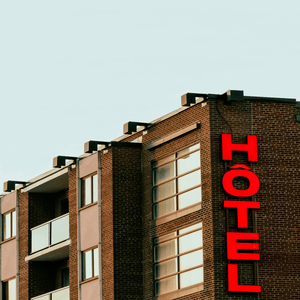Hospitality Energy Audit – Singapore
Comprehensive energy audit for a 20-story premium serviced residence and hotel in Singapore’s city center. The study identified operational and equipment upgrades to improve HVAC efficiency, water conservation, and lighting control. Implementing the recommended measures is projected to reduce energy consumption by 19.4% to 24.8%, lowering the Energy Use Intensity (EUI) from 177 kWh/m²/year to 138 kWh/m²/year, significantly outperforming the average for Singapore hotels.
- Review of pressurized air systems, chilled water hydronics, and heat recovery systems in PAHUs.
- Evaluation of guest room and common area controls for occupancy-based operation.
- Assessment of water fixtures for flow efficiency and conservation potential.
- Inspection of insulation integrity for chilled water systems.
- Replace faulty differential pressure sensors for chilled water pumps.
- Stop continuous operation of pressurized air fan to cut unnecessary energy use.
- Reprogram PAHU schedules to match occupancy patterns.
- Upgrade PAHU heat recovery to enthalpy wheels.
- Install VSDs on large PFCUs with CO₂ sensors for demand-based ventilation.
- Replace degraded insulation on chilled water pipes.
- Install water-saving fixtures for faucets and showers.
- Add motion and daylight sensors in guest areas and common spaces.
- Optimize thermostat setpoints and setback temperatures.
- Plan medium-term replacement of air-to-water heat pumps with high-efficiency, low-GWP models.
- Verify airflow control via CO₂-based VSD operation.
- Functionally test upgraded PAHU scheduling and heat recovery.
- Measure flow/pressure after differential pressure sensor replacement.
- Update preventive maintenance schedules for HVAC and hydronic systems.
- Train staff on new control sequences and efficiency measures.
- Enable continuous data monitoring for real-time performance tracking.
- Occupancy-driven ventilation and cooling in guest and public areas.
- Plan high-efficiency DHW production using water-to-water heat pump integration.
- Seasonal setpoint adjustments to balance comfort and savings.
- Estimated Annual Energy Savings: up to 24.8%.
- Annual CO₂ Emissions Reduction: up to 24.8%.
Result: A targeted combination of quick operational wins and planned equipment upgrades delivering substantial energy and carbon reductions, improved comfort, and enhanced operational control—positioning the property as a sustainability leader in Singapore’s hospitality market.

